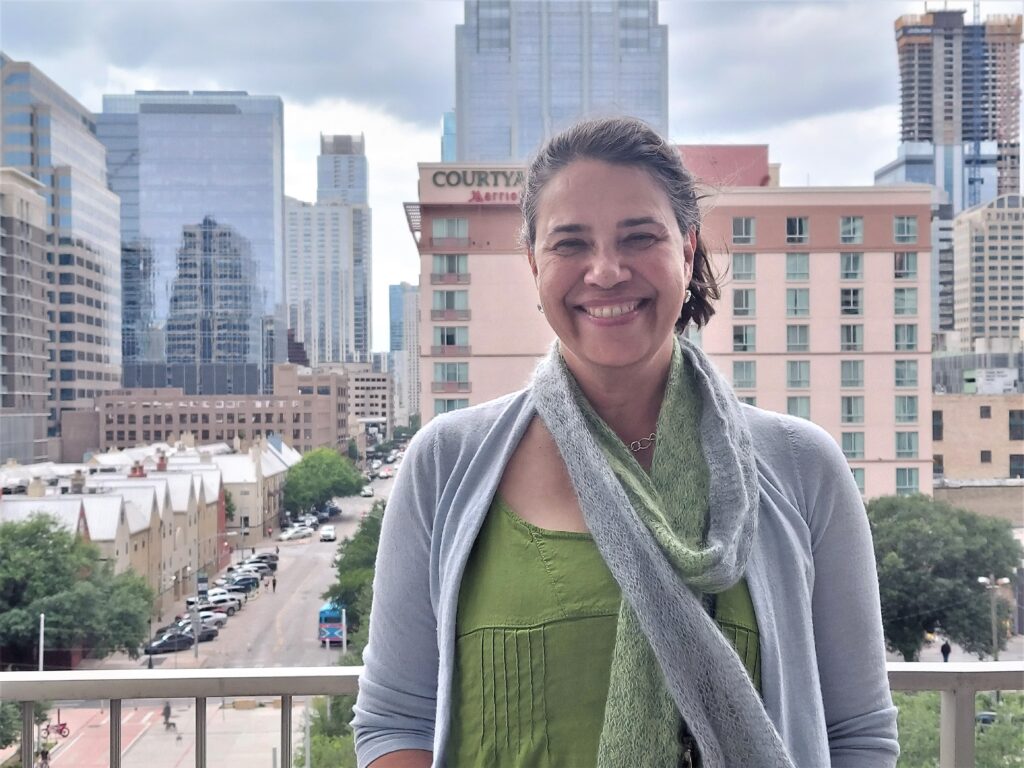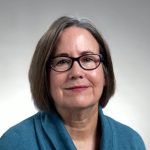
Note: This Q&A has been edited for clarity.
How long have you been an AHCJ member? Who or what inspired you to join?
I have been an AHCJ member for about a month. I joined prior to coming to the conference. I’m thrilled to be an award winner this year, which is what introduced me to AHCJ. I was invited to the conference because of the award, but I immediately felt like I needed to join the organization.
Congratulations! What award did you win?
I won the first place award for beat reporting. I was thrilled and honestly humbled and surprised because there’s a pandemic going on. Reporting on the pandemic has been phenomenal by so many beat reporters — but I don’t cover the coronavirus. … I cover health equity. So for me to be chosen for this award was really meaningful and a sign that issues of racial and ethnic health disparities are really on everyone’s radar now.
(Click here to read McFarling’s award-winning story: “The whitest specialty”)
How far did you travel to the conference?
I’m from Los Angeles. Remarkably, I got a nonstop flight from my hometown airport of Burbank, which is right by my house. It was a really easy flight, because for me it’s like a two hour drive to LAX.
Only me and two other people were masked on my flight, and that was a little bit jarring. I haven’t taken many flights since 2019. This was my first flight since the mask mandate was lifted. I was surprised how many people were unmasked and how many people were confused. A lady behind me said, “Oh, we’re not supposed to wear our masks,” and I thought, “Oh, gosh, the messaging is so messed up on this.”
What do you think is the biggest asset of the Association of Healthcare Journalists and why?
I think it’s the thoughtfulness that goes into everything that I’ve seen so far.
I love the blog posts that I’ve read since I became a member, from the practicalities of where to get a taco in Austin while you’re at the conference, to how to diversify your sources when you’re writing about medicine.
Also, the sessions have been so thoughtful. I have a notebook full of story ideas. I know that a lot of hard work is behind that. The only heartbreaking thing for me is that often I want to go to all three sessions, but they are at the same time.
How do you feel about attending the first in-person AHCJ annual conference since 2019 and why?
I love being here. I’m seeing people in person I haven’t seen in so long. I’m seeing people that I feel like I know from Zoom and Twitter, but I rushed up to give them a hug and realized they don’t know who I am.
I know it’s still concerning for people that are immunocompromised or at risk. I know some people are saying, “Don’t travel because it’s ridiculous, the mask mandate got lifted on planes.” But I personally feel like we have to balance risk now. It’s very much worth it for me to be here in person.
What should we as health journalists be reading right now and why?
I think journalists should maybe take a step away from the news as much as they can, and look more at books and historical documents.
Health equity issues became so visible in 2020, but some of my resources are reports that are 20 and 30 years old. They include the writings of W. E. B. Du Bois, who wrote about exactly what we are seeing in the COVID pandemic at the turn of the last century.
I think it provides a really good perspective to not get caught up in the nitty gritty of the daily news and take some of these deeper, sometimes more academic or historical looks, because many problems we face are not new at all.
If you’re interested in covering health equity, you need to understand structural racism. I would look at books by Ibram X. Kendi abd W. E. B. Du Bois. I would also look at a books about the history of the Tuskegee studies and one called “Medical Apartheid” by Harriet Washington.
We can’t separate racism out from health inequities. A lot of us, myself included in the past, we’re not as educated about the history of race in our country as we used to be.
What is the funniest experience you’ve had while covering a health story?
It’s not funny, but it’s very vivid. I was a young reporter, and I went to a journalist retreat at Jackson Lab. They create genetically engineered mice, and Francis Collins was there. In the evening, they had a bonfire and he was just sitting with his guitar and singing folk songs.
It was so illuminating to see someone of such high stature sort of come down low and be so real. That’s one thing I love about traveling and reporting, as opposed to talking to someone on the phone or in their office at the hospital. Just seeing other sides of people.






